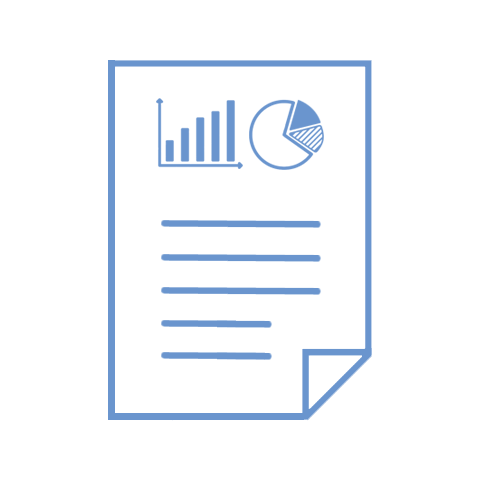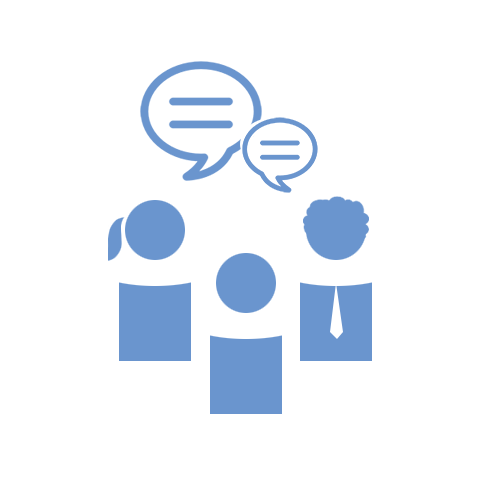 Chasing an impactful career, want a video on EA to share with your friends or puzzled by how to weight the welfare of different types of animals? Have a look at what we brought to you this month!
Chasing an impactful career, want a video on EA to share with your friends or puzzled by how to weight the welfare of different types of animals? Have a look at what we brought to you this month!The Team
Articles
In which career path can you have the biggest positive impact on the world? Here is an updated list by 80,000 Hours, which summarizes the culmination of seven years of research.
Want a good way to explain EA to friends? Will MacAskill makes a compelling case for doing as much as good as possible in his 12-minute TED talk. It should go on to become one of the classic explanations of effective altruism.
Is it better to be a wild rat or a factory farmed cow? How can we identify the most effective interventions without having a systematic method for comparing animal welfare? Charity Entrepreneurship has created a weighted animal welfare index that captures a broad range of ethical considerations that can apply to both farmed and wild animals.
One way to learn about doing good is to see how others have done good in the past. The Open Philanthropy Project have been researching this, and have just released a case study on the successful campaign for marriage equality in the US, in which philanthropists may have had a big impact.
The number of Giving What We Can pledges over the last two years, membership continues to grow, even though this hasn’t been a priority project for CEA recently.
The 2018 EA Survey results are in. Lauren Whetstone shares how the EA community demographics and characteristics have changed from previous years.
September 26th was Petrov Day, the 35th anniversary of Stanislav Petrov, a Soviet officer who averted nuclear war. To commemorate, we suggest two interesting podcasts on nuclear doomsday machines and emerging risks.
Updates
80,000 Hours
80,000 Hours started work on their priorities for the rest of the year: recruiting and advising 100+ people in person and updating their website to better highlight more advanced content. They also released new articles on their top recommended careers, comparative advantage, a randomized experiment about whether to quit your job, the AAAS Fellowship and a psychology replication quiz. They released a podcast with Amanda Askell on infinite ethics and many other topics.
Animal Charity Evaluators
Animal Charity Evaluators recently published a new report on the carbon and water footprints of diet choices and a report assessing current trends in meat production.
Animal Charity Evaluators recently published a new report on the carbon and water footprints of diet choices and a report assessing current trends in meat production.
Centre for Effective Altruism
CEA shared additional plans for the new EA Forum, which they hope will become the main hub for content and discussion in the community. Applications have closed for EA Global: London (October 26-28), and you can see the list of confirmed speakers on the event website.
Centre for the Future of Intelligence
CFI held workshops on the ethics of algorithmic decision making, and on AI, politics and regulation. CSER and CFI co-organised two workshops (on existential risk and AI) with the Singaporean Government. CFI researchers won funding from the Wellcome Trust and the Canada-UK Foundation, and published a piece on understanding other minds.
Centre for the Study of Existential Risk
CSER co-founder Lord Martin Rees published his new book On the Future. CSER and CFI co-organised two workshops (on existential risk and AI) with the Singaporean Government. CSER also hosted a public lecture on North Korea’s nuclear policy, and a workshop on AI, cybersecurity and nuclear weapons. CSER’s Executive Director gave an hour-long interview on AI and existential risk. CSER researchers published papers on creativity and existential risk research, decision theory and the costs and benefits of high-yield farming.
GiveWell
GiveWell recommended a $5 million grant to Evidence Action Beta to create a dedicated portfolio within its own incubator, focused on interventions that GiveWell and Evidence Action think are promising, but that lack existing organizations to scale them. GiveWell also published several new interim intervention reports.
Future of Humanity Institute
FHI hired three new staff to the Research Scholars Programme and the Governance of AI Program. In addition, FHI will be aiming to open 3 more operations roles this year, including a Head of Operations. FHI received grants of $7,941,372 from the Open Philanthropy Project to support work on AI, biosecurity and macrostrategy. Stuart Armstrong’s paper with Sören Mindermann on the impossibility of deducing preferences and rationality from human policy was accepted to NIPS 2018.
Future of Life Institute
FLI presented the Future of Life Award to Stanislav Petrov, “The Man Who Saved the World”, Lucas Perry spoke with Will MacAskill on the AI Alignment Podcast about moral uncertainty and preference aggregation and Ariel Conn spoke with Paul Scharre and Mike Horowitz about AI and nuclear weapons on FLI’s monthly podcast.
Open Philanthropy Project
The Open Philanthropy Project announced grants of $10 million to The Humane League and $5,069,866 to support the Evidence Action Beta incubator program, opened applications for its second annual AI Fellows Program and published a History of Philanthropy case study on the campaign for marriage equality in the U.S.
Raising for Effective Giving
REG launched their new fund focused on decreasing the likelihood of worst-case outcomes that cause vast amounts of suffering as a result of advanced technologies. The fund managers are Lukas Gloor, Jonas Vollmer and Brian Tomasik.
Timeless Classics
In light of the recent discussions on representativeness and cause-impartiality, let’s revisit this 2014 post by Owen Cotton-Barratt, on “Cooperation in a movement supporting diverse causes”.
Announcements
Animal Advocacy Research Fund
ACE's Animal Advocacy Research Fund is currently accepting proposals for their next round of funding. If you're interested, please submit all materials by November 2.
Participants Needed for Study of Moral Emotions and Attitudes
Researchers at Yale seek healthy, English-speaking participants for a two-part online study of everyday moral emotions and attitudes. Participants will be compensated and can earn bonuses for effective charities, so participating can benefit charitable causes as well as improve scientific understanding of charitable giving. More info: http://bit.ly/everydayyale. Questions? Email everydayexperiencestudy@gmail.com.
Jobs
80,000 Hours has redesigned their job board, which now includes a wider range of jobs (120+ at last count).
Go forth and do the most good!
Let us know how you liked this edition and how we can improve further.
If you’re interested in past editions of this newsletter, here is the full archive
Get Involved in Effective Altruism
The Effective Altruism Newsletter is a joint project between the Centre for Effective Altruism, and Rethink Charity.
This is an archived version of the EA Newsletter sent to 49,696 subscribers on October 4, 2018.
To see the full archives, click here.


